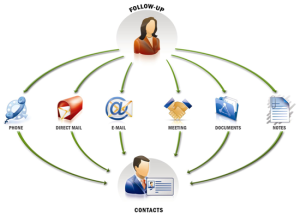For a number of years, the CRE world has watched anxiously as the face of retail continues to change. There appears to be a siege on brick-and-mortar retail space as the delivery channels for retail products continue to evolve. Will retail space and development be a viable CRE category in which to continue to invest? Will developers still pursue new developments? Are the days of spec retail space over? How do we deliver and cater to the millennial generation? These questions and more are continuing to be a concern to brokers, owners, developers, analysts, researchers and others.
Retail is changing! However, one fact is undeniable. Products are still being bought and retail sales nationally are not declining. In fact, sales are increasing. The mechanism of delivery is the key that has everyone on the edge of their seats in order to understand its implications. In order to catch up to the market and the needs of the consumer, many retailers are changing their approach to what we most understand as “the store.”
Retailers are taking on the language of this generation in full stride. Many retailers have started (and are acting) on these ideas. Many like Starbucks, Apple, Urban Outfitters, along with other retailers want to create an experience for their consumers; a gathering place, a journey, a technological experience, self-checkouts and more.
How has this impacted occupancy and rents? Retail across the nation is seeing slight declines in both rents and occupancy. No doubt this is due to the need for an evolution of the store. Size used to matter; now craft, specialty and experience are driving the retail space market. The need for the Big Box will be very specific to specialty stores. There are a few timeless concepts that have seemed to dial into this philosophy long before it was vogue. Brands like Cracker Barrel, Bass Pro Shops and even a faded brand like Woolworth created an experience for the consumer. Although Woolworth faded, its principles will resurrect in the new era of retail. I shop, I eat and I socialize all at one stop.
Obviously, a few paragraphs cannot adequately address the topic. This is just a teaser of the trends in retail. More importantly though, how will these trends impact the face of retail and what should I look for if I am an owner, investor, developer, researcher or spectator? First and foremost, these trends will undoubtedly have impact on Retail CRE. The impacts will be more focused build-to-suits, urban uptick as far as interest and redevelopment and new communities incorporating a stand-alone experience. Rental rates in traditional retail will continue to see pressure, occupancy rates will most likely see a continued pressure and small-shop space will be in demand.












